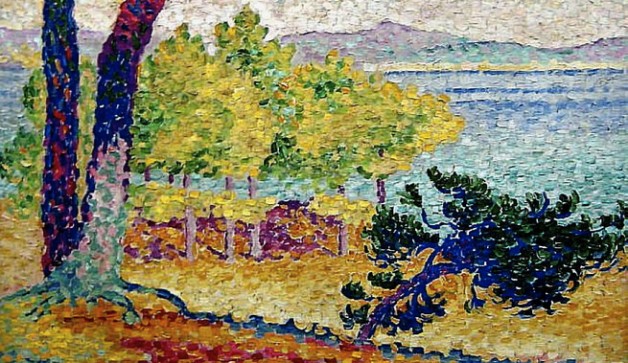This spring, when the weather turned nice, I went outside to “exult in the day the Lord had made.” As I searched for words to express my delight, I tried to remember some of the best spring poems I knew. My Dominican brothers will probably not be surprised that I thought of an ode by Horace, nor that I started reciting it to myself: Diffugere nives, redeunt iam gramina campis arboribusque comae. “The snows have fled, the grass returns to the fields, and the leaves to the trees.” I wondered how the rest of it went, and remembered that a noted scholar had called this ode, celebrating the arrival of spring, “the most beautiful poem in ancient literature.” Back inside, I looked it up and saw, to my surprise, that its celebration of spring lasts only about six lines. After that, we are introduced to the main theme: uncertainty about tomorrow, certainty about death, and dread of an inescapably permanent residence in a bleak underworld (which, according to ancient paganism, was the only afterlife available.)
I had hoped to appropriate the beauty of classical literature to express my simple joy, but Horace let me down with his fixation on moping about Hades for all eternity—understandable though that may have been for someone in his situation. Honestly, if you need an antidote to the fantasy that pagans, not Christians, are the ones who are really able to enjoy life, familiarity with classical Greek and Latin literature can help. Part of the greatness of these authors is their attention to, and their candor about, the human condition. It is this very realism that made the ancient Romans’ literary treasures, like the Aeneid, such devastating weapons in the hands of St. Augustine as he argued in The City of God that paganism is powerless to provide real happiness, not only in the next life, but even in this one. It is Christians, he said, who are in the best position to enjoy the goods of this world cheerfully.
Human beings cannot help but yearn for perfect happiness, at least in a conditional way, i.e., “if it were possible.” But happiness cannot be perfect if it is accompanied by the knowledge that it will end, or even with the fear that it might end, and any happiness that this world can offer is inseparable from such knowledge. Not only do we know we will die, but we fear it may happen sooner rather than later. This awareness bedevils even the best of the pagan’s attempts to eat, drink, and be merry. Indeed, the very phrase, “Eat, drink, and be merry,” as well as others like it, were originally expressions of pagan hopelessness—a fact that may surprise Christians, who tend to interpret them more innocently. Think, for example, of the well-known expression, Carpe diem, along with its less frequently quoted continuation, quam minimum credula postero: “Seize the day, trusting as little as possible in the future.”
The Christian, too, understands that he will die, and at an hour he does not know. But, since he has received God’s free offer of grace, his ultimate hope for happiness is placed where it belongs: in God. This hope is not mere conjecture or a “positive attitude”; rather, it is a theological virtue founded on God’s gift of faith, and, as such, it is certain. It has a serenity and stability that even severe suffering and want cannot undo, for “whether we live or die, we are the Lord’s” (Romans 14:8). This means that, for a Christian, the goods of this world no longer have to support a weight too heavy for them to bear. We are freed to use in a more wholesome and carefree way that from which we don’t expect too much.
A Christian certainly suffers when he is bereaved of the goods of this life, which are real and important, but he knows he is not thereby undone. As the Psalmist says, “The floods of water may reach high, but him they shall not reach” (32:6). He may exclaim, “Save me, O God, for the waters have risen to my neck” (Psalm 69:2), but he knows that God will keep him from drowning.
On the one hand, if a Christian freely gives up his earthly goods in order to make more room in his life for God, he can do so joyfully and without regret. On the other hand, if he has an abundance of goods, anxiety over their loss has only as much power over him as he chooses to give it. He can drink a glass of wine without being sad that he cannot drink without measure, and, at the same time, he doesn’t despise such humble pleasures simply because they are not the answer to the meaning of life. Likewise, when he enjoys the company of his family and friends, he does not have to fret about whether they are as entertaining to him as they could be. He is free to love them for who they are.
Finally, when he enjoys a spring day, he does not have to worry that it is the only thing standing between him and Tartarus. He can receive it with simple thanksgiving as a beautiful gift from the hand of its Creator. Furthermore, and even more importantly, ever since the resurrection of Christ, the springtime has a wondrous new significance. As the ancient Christian poet Venantius Fortunatus put it in his great Easter hymn, Namque triumphanti post tristia tartara Christo / Undique fronde nemus gramina flore favent: “The wood with its leaf and the meadow with its flower applaud Christ from every side, who from the sorrowful underworld returns triumphant.”
✠
Image: Henri-Edmond Cross, Afternoon at Pardigon







